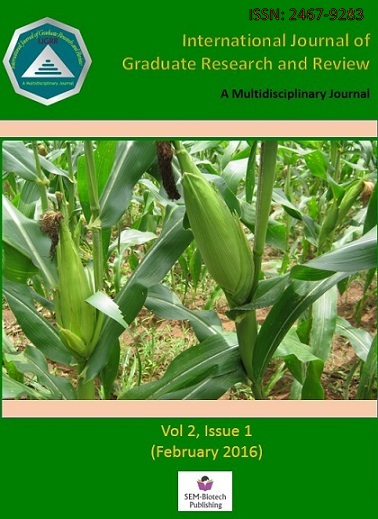




The Policy Implementation of Accountability Performance System in The Government Institution at The Central Sulawesi Province Government
Irwan*, Ridwan, Mustainah, Ani Susanti
University of Tadulako, Palu 2020, Indonesia
Irwan*, Ridwan, Mustainah, Ani Susanti
University of Tadulako, Palu 2020, Indonesia
Abstract
This study aims to analyze the implementation of the performance accountability system policies of government agencies in the government of Central Sulawesi and to obtain new concepts for the development of public administration, especially public policy. This research uses a qualitative method with a descriptive analysis approach. The location of this research is the regional apparatus in the Central Sulawesi Provincial Government. Data collection techniques using interviews, observation, and documentation. There are 7 informants. Technical samples using purposive sampling. Data analysis techniques were carried out in stages: 1) Clarifying data; 2) Grouping data; 3) Processing data; and 4) Describe the data as a whole. The results and discussion of the research are based on Grindle's theory which consists of 2 (two) main factors namely policy content and policy context. Policy content: 1) Parties whose interests are influenced, both policy makers and policy implementers whose interests are not affected; 2) The benefits obtained to improve efficiency, effectiveness and productivity of bureaucratic performance are not optimal; 3) The expected changes have not changed the behavior, attitudes, and culture of the performance of policy implementers; 4) The position of the policy maker has been done well because it has involved the stakeholders and takes into account its complexity; 5) Program implementers implement SAKIP policies quite well in accordance with the duties and functions of their respective positions; 6) Commitment to resources has not yet received legislative and executive support. Policy context: 1) The power, interests and strategies of the actors involved have not been a driver in the policy context for the achievement of SAKIP policy content; 2) Institutions and regime characteristics do not yet support SAKIP policies; and 3) Compliance and responsiveness, policy implementers have not complied and responded well to the contents of SAKIP policies.
Keywords: SAKIP; Performance Planning; Performance Indicators; Performance Management; Policy Implementers
This study aims to analyze the implementation of the performance accountability system policies of government agencies in the government of Central Sulawesi and to obtain new concepts for the development of public administration, especially public policy. This research uses a qualitative method with a descriptive analysis approach. The location of this research is the regional apparatus in the Central Sulawesi Provincial Government. Data collection techniques using interviews, observation, and documentation. There are 7 informants. Technical samples using purposive sampling. Data analysis techniques were carried out in stages: 1) Clarifying data; 2) Grouping data; 3) Processing data; and 4) Describe the data as a whole. The results and discussion of the research are based on Grindle's theory which consists of 2 (two) main factors namely policy content and policy context. Policy content: 1) Parties whose interests are influenced, both policy makers and policy implementers whose interests are not affected; 2) The benefits obtained to improve efficiency, effectiveness and productivity of bureaucratic performance are not optimal; 3) The expected changes have not changed the behavior, attitudes, and culture of the performance of policy implementers; 4) The position of the policy maker has been done well because it has involved the stakeholders and takes into account its complexity; 5) Program implementers implement SAKIP policies quite well in accordance with the duties and functions of their respective positions; 6) Commitment to resources has not yet received legislative and executive support. Policy context: 1) The power, interests and strategies of the actors involved have not been a driver in the policy context for the achievement of SAKIP policy content; 2) Institutions and regime characteristics do not yet support SAKIP policies; and 3) Compliance and responsiveness, policy implementers have not complied and responded well to the contents of SAKIP policies.
Keywords: SAKIP; Performance Planning; Performance Indicators; Performance Management; Policy Implementers
Int. J. Grad. Res. Rev. Vol-6, Issue-1: 19-33
International Journal of Graduate Research and Review is licensed under a Creative Commons Attribution Non-Commercial 4.0 International
(https://creativecommons.org/licenses/by-nc/4.0).
(https://creativecommons.org/licenses/by-nc/4.0).





